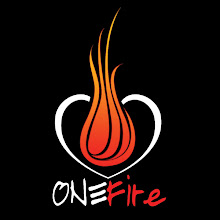We are pleased to present the next in our series of Bio's with the amazing story of a true Eco pioneer Bob Hunter.


Many have argued that Bob Hunter was the spiritual
father of Greenpeace. Greenpeace International itself
states, "Perhaps more than anyone else, Bob Hunter
invented Greenpeace." He was the first President of the
Greenpeace Foundation and amongst other things, he
spearheaded a successful campaign to ban commercial
whaling. He was a veteran advocacy columnist,
scriptwriter, author, and lecturer. Bob began his
communications career at the Winnipeg Tribune and
later wrote a regular column for the Vancouver Sun,
which was instrumental in promoting environmental
awareness throughout British Columbia at the time.
After his time with Greenpeace he continued to focus
the public on giving their local and global attention
towards environmental issues as the Ecology
Specialist for City TV; a television news station in
Toronto.
Robert (Bob) Lorne Hunter (October 13, 1941–May 2, 2005) was a Canadian environmentalist
journalist, author and politician. A member of the Don't Make a Wave Committee in 1969 with Dorothy and Irving Stowe, Marie and Jim Bohlen, and Ben and Dorothy Metcalfe. He was a co-founder of Greenpeace in 1972 with Patrick Moore
Patrick Moore (environmentalist), Ben Metcalfe, Jim Bohlen, Irving Stowe and several other members. Hunter, the first President of Greenpeace, was a long-time campaigner for environmental causes. He lead the first on-sea anti-whaling campaigns in the world, against Russian and Australian whalers, which helped lead to the ban on commercial whaling. He campaigned against nuclear testing, the Canadian seal hunt and later, climate change with his book 'Thermageddon: Countdown to 2030.' He was named by Time as one of the "Eco-Heroes" of the 20th century and is charged with coining the terms "mindbombs" and "eco-warrior
Born in St. Boniface
Saint Boniface, Manitoba, Manitoba, Hunter's career in journalism began in the 1960s at the Winnipeg Tribune and the Vancouver Sun, where he focused on the counterculture as well as environmental issues. Beginning in 1988, he worked as a commentator and reporter for Toronto's CityTV and, since its launch, its all-news sister channel CP24 -CablePulse 24. He created many documentaries about Canada's north that are still often aired on CP24 in off-peak hours. He was also the longtime "Enviro" columnist in Toronto Toronto's Eye Weekly.
Environmental activism
Robert Hunter was on the first expedition of the Don't Make a Wave Committee
in 1971, titled Greenpeace I. This was a halibut seiner by the name of Phyllis Cormack, chartered to travel to Amchitka to attempt to halt the underground nuclear bomb test codenamed Cannikin by the United States military beneath the island of Amchitka, Alaska.
In 1975 Robert Hunter led the Greenpeace expedition against the Soviet Whaling fleet, along with lifelong friend and activist, Paul Watson and Patrick Moore. The expedition chartered the Phyllis Cormack again, and pioneered using inflatable zodiacs as a shield between the harpoon and the whale.
He participated on many Greenpeace and Sea Shepherd campaigns, and was on the advisory board for the Sea Shepherd Conservation Society for several years. A Sea Shepherd vessel was named for him after his death.
Politics
Hunter surprised many when he entered politics as a candidate for the Ontario Liberal Party
Ontario Liberal Partyin a 2001 provincial by-electionin Beaches—East York. Hunter's environmentalism had led many to assume that his politics were more in line with the New Democratic Party or the Greens ....Green Party of Ontario, and he had frequently criticized Liberal politicians in his columns.
In the end, Hunter lost by almost 4,000 votes to Michael Prue of the NDP. However, despite these results, Hunter in 2002 called for the Liberals and the Green Party of Ontario to form an electoral alliance.
Author
Hunter wrote numerous books on environmental subjects. In 1991, he won the Governor General's Award for literature for his book Occupied Canada: A Young White Man Discovers His Unsuspected Past. He also wrote on matters relating to aboriginal rights in Canada and remained in contact with Greenpeace and other environmental groups until his death.
The One Fire Movement salutes the great work and life of BOB HUNTER
For more on Bob Hunter : http://www.bobhunter.org




No comments:
Post a Comment